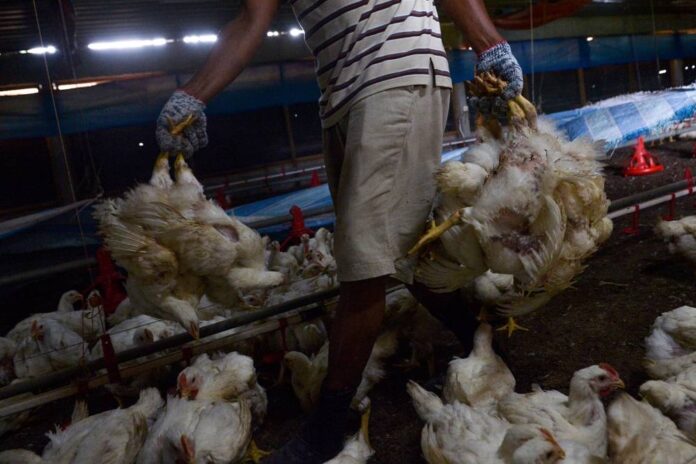The restriction will be relaxed by allowing the export of 1.8 million chickens per month out of the set limit of 3.6 million chickens per month, said Agriculture and Food Industries Minister Datuk Seri Ronald Kiandee. — Picture by Miera Zulyana
Follow us on Instagram, subscribe to our Telegram channel and browser alerts for the latest news you need to know.
KUALA LUMPUR, Oct 10 — The restriction on the export of live commercial broilers will be eased in phases starting tomorrow, said Minister of Agriculture and Food Industries Datuk Seri Ronald Kiandee.
He said the restriction will be relaxed by allowing the export of 1.8 million chickens per month out of the set limit of 3.6 million chickens per month.
He said the decision was made following the supply of chickens which started to stabilise in the third quarter with an average surplus production rate of 1.8 million birds per month.
“The ministry through the Department of Veterinary Services (DVS) and the Malaysian Quarantine and Inspection Services Department (MAQIS) will continue to monitor the supply of chicken in the country as well as the implementation of live commercial broiler exports which will involve almost 100 exporting breeders through the monitoring mechanism that has been developed,” he said in a statement today.
He said each farm has a set export quantity limit based on the planning data and the monthly chicken production projections which it has to adhere to, adding that non-compliance will lead to the suspension of its export permit.
He said these exporting farms are not allowed to claim subsidies for chicken production for the export market which is provided by the government to ensure the availability and continuity of local chicken supply at reasonable prices for Malaysians.
At the same time, he said the export ban for round chickens, chicken cuts and day-old chicks remains, adding that MAQIS will continue to implement physical control at all exits.
Ronald said the decision to fully lift the restriction on chicken export will depend on the condition of chicken supply in the local market and farm productions.
The restriction which was implemented on June 1 this year was to ensure the availability of chicken supply because the government was committed to ensuring the continuity of the country’s chicken production at an optimal level. — Bernama



